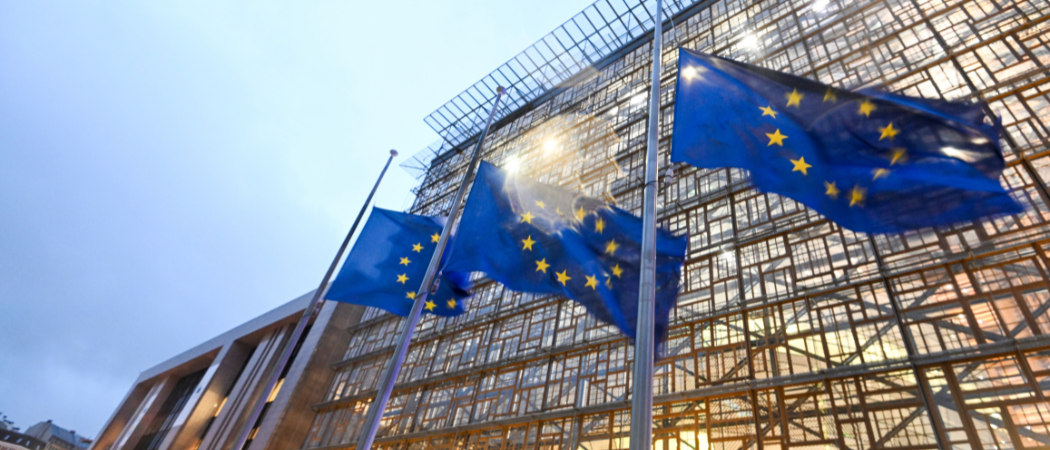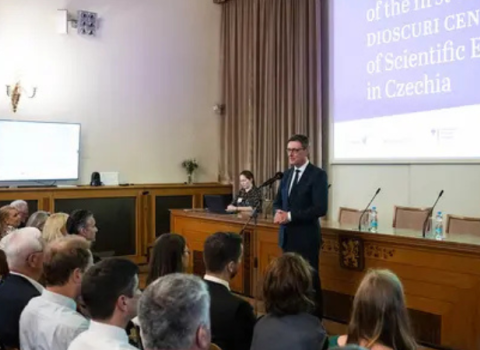Council plan for the next iteration of Horizon Europe could see Widening programme and excellence principles negotiated by EU finance ministers

The Europa building, the seat of the European Council and Council of the European Union, in Brussels. Photo credits: European Union
Just two months after the European Commission published its proposal for the next multiannual EU budget, which included the tenth Framework Programme for research and innovation (FP10) and a new European Competitiveness Fund (ECF), details are already changing.
Updates to the texts made by the Council of the EU on July 31 cast doubt on the future of the Widening programme and of excellence as the main criterion for evaluating proposals for EU research funding. The two relevant articles in the FP10 proposal have been bracketed, indicating that an “ad hoc working party” on the next multiannual budget will examine them during high-stakes negotiations among member states.
The document seen by Science|Business puts in brackets the parts of the Commission’s proposal which will be evaluated by representatives of national finance ministries, without necessarily consulting with the Brussels representatives of research ministries.
For the most part, legislative negotiations on the Framework Programme for research and innovation are usually settled in what the Council calls “the working party on research,” a preparatory body composed of specialised science diplomats representing research ministries from the EU’s 27 member states.
The ad hoc working party on the multiannual budget, which made up of diplomats working more closely with ministries of finance and foreign affairs, usually deals with articles that refer directly to budgets. But this time around it will also look at the contents of FP10.
In the document, the Council has bracketed articles 19 and 25 in the Commission’s FP10 proposal. Article 19 lays out the scope and updated rules for the Widening programme for member states and regions with poor research and innovation performance. Article 25 meanwhile is considered one of the cornerstones of the EU research programme, as it stipulates that the main evaluation criteria for awarding grants is scientific excellence.
Related articles:
- Commission floats Widening reforms in leaked FP10 proposal
- The road to FP10 is paved with missing details
The budget working party “will examine ‘bracketed’ parts of the proposals, while the relevant working parties will examine the remaining parts of these proposals,” the Council document reads.
Research lobbies, as well as science diplomats in Brussels are already sounding the alarm.
“We are extremely worried that Article 25 is fully bracketed,” said Julien Chicot, head of research and innovation policy at the Guild of European Research-Intensive Universities. “We are also surprised that the provisions on Widening are bracketed.”
For Chicot, the excellence criterion in Horizon Europe evaluation means the programme can attract the best researchers working on cutting-edge projects. Tinkering with that principle would reduce the attractiveness of the programme for researchers with the brightest ideas. “Each party needs to understand that they need to safeguard scientific excellence and refrain from any policy steering there,” he said.
Chicot also hopes the ad hoc working party on the multiannual budget will not undermine the Widening programme, which is still needed to reduce disparities in R&D investments and outcomes in nearly half of EU member states. “The main question is whether they have the internal expertise to fully grasp the challenges confronting these countries and to design the most effective instruments to support capacity-building efforts,” Chicot said.
According to one EU diplomat, the composition of the ad hoc working party on the multiannual budget could mean that research will not be a top priority during negotiations. The interests of research will not be well-represented if decisions on critical components of FP10 are left to finance ministries, for example.
“When having to choose between more money to cohesion and more money for Widening, they will think with their wallets,” the diplomat said.





 A unique international forum for public research organisations and companies to connect their external engagement with strategic interests around their R&D system.
A unique international forum for public research organisations and companies to connect their external engagement with strategic interests around their R&D system.